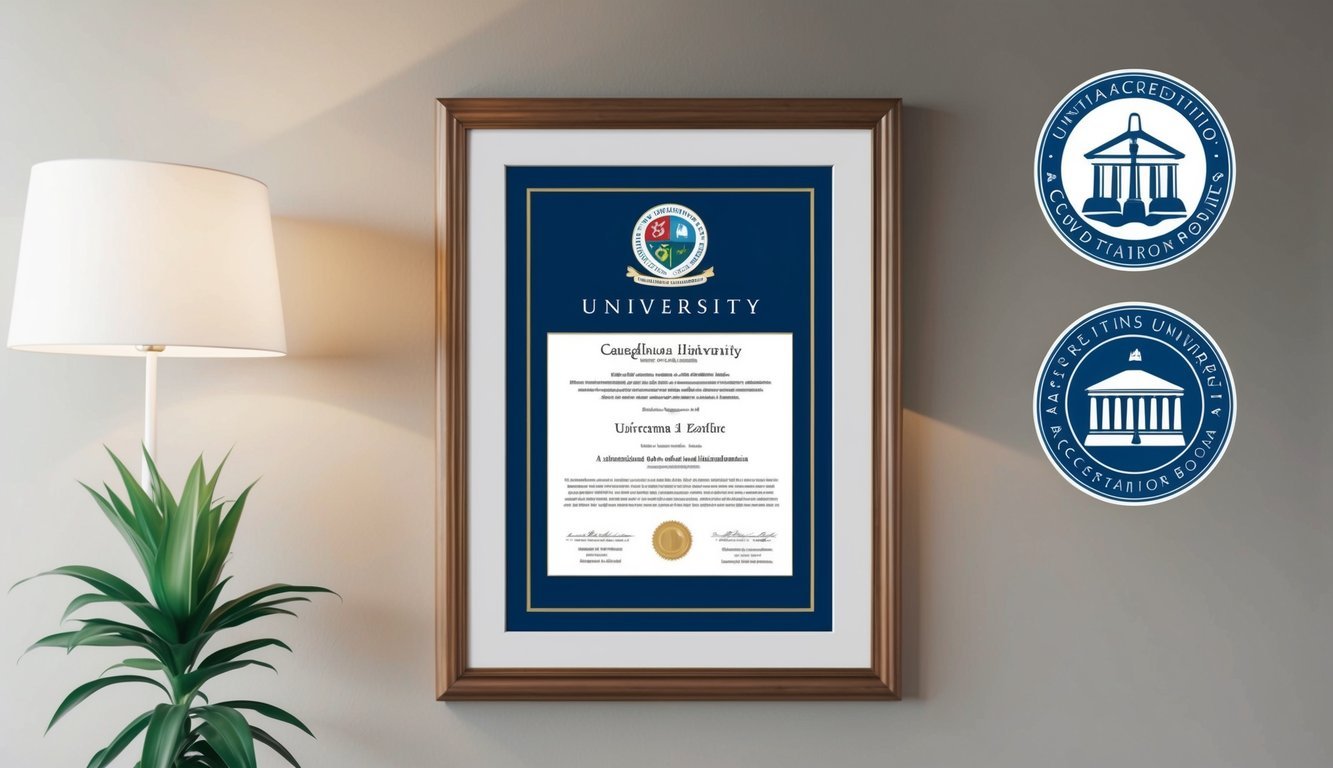If you are considering advancing your career in healthcare, pursuing an MSN/MHA dual degree could be the ideal path for you.
This program allows you to earn a Master of Science in Nursing (MSN) alongside a Master of Healthcare Administration (MHA), equipping you with both clinical expertise and administrative skills. By obtaining this dual degree, you enhance your leadership capabilities, positioning yourself for roles such as nurse administrator or chief nursing officer.
The MSN/MHA dual degree prepares you to meet the evolving demands of healthcare leadership.
You will gain critical skills in areas like healthcare policy, strategic planning, and financial management, ensuring you are well-rounded in both nursing practice and administration.
With the flexibility of online programs, you can manage your studies without disrupting your work schedule, making it an accessible option for busy professionals.
By investing in an MSN/MHA dual degree, you are not only advancing your knowledge but also significantly increasing your career prospects and earning potential.
As healthcare systems increasingly seek leaders with comprehensive skills, this dual qualification can set you apart in a competitive job market.
Explore programs that fit your career goals and start your journey towards becoming a leader in healthcare today.
Understanding the MSN/MHA Dual Degree

The MSN/MHA dual degree offers a unique opportunity to blend advanced nursing skills with healthcare administration knowledge.
This combination prepares you for leadership roles in the healthcare sector, equipping you with essential insights into both clinical and operational aspects of care.
Advantages of Pursuing a Dual Degree
Pursuing an MSN/MHA dual degree provides several advantages that can significantly enhance your career.
-
Time and Cost Efficiency: Combining two degrees allows you to save time and resources compared to earning them separately. Most programs streamline the curriculum.
-
Expanded Skill Set: You will gain competencies in both nursing practice and healthcare management, making you a versatile candidate for various roles.
-
Increased Earning Potential: Graduates often find that they qualify for higher-paying positions. Dual degree holders can expect salaries in leadership roles, with many positions exceeding $100,000 annually.
This program places you in a strong position to navigate healthcare challenges effectively, leading to improved outcomes and efficiencies.
Career Pathways with MSN/MHA
The MSN/MHA degree opens various career pathways, making it easier for you to find a niche that fits your interests and skills.
-
Nurse Administrator: Oversee nursing staff and manage operations in healthcare settings.
-
Chief Nursing Officer (CNO): Play a pivotal role in strategic decision-making and healthcare policy implementation.
-
Chief Operating Officer (COO): Focus on healthcare strategy and operational efficiency, directing the overall management of healthcare facilities.
-
Quality Management Specialist: Drive quality initiatives aimed at improving patient care and operational processes.
By integrating nursing and administrative competencies, this dual degree positions you for substantial roles that impact both patient care and the strategic direction of healthcare organizations.
For more information on specific programs, you can explore options at Nursing Journal and Nursing License Map.
Admission Requirements and Accreditation

When considering a dual MSN/MHA degree, it’s vital to understand the specific admission criteria and the importance of program accreditation.
This knowledge ensures you meet the eligibility requirements and can confidently choose a respected institution.
Eligibility Criteria for Prospective Students
To qualify for an MSN/MHA dual degree program, certain eligibility criteria must be met:
- Educational Background: You must hold a Bachelor of Science in Nursing (BSN) from an accredited institution. This is fundamental for entry into MSN programs.
- Licensure: A current and active Registered Nurse (RN) license is typically required. Check state-specific regulations as they may vary.
- GPA Requirements: Many programs expect a minimum undergraduate GPA, often around 3.0, though this can differ by institution.
- Professional Experience: Some programs may request a specified amount of nursing practice experience, ranging from one to two years.
- Application Materials: Be prepared to submit transcripts, letters of recommendation, and a personal statement.
Ensure you check each program’s unique requirements as they may have additional criteria.
Importance of Accreditation
Accreditation plays a crucial role in the quality and recognition of educational programs.
Here are key points to consider:
- Program Accreditation: Look for programs accredited by recognized bodies, such as the Accreditation Commission for Education in Nursing (ACEN). This ensures the program meets high educational standards.
- Institutional Accreditation: Attending an institution with regional accreditation assures you that your degree is respected and recognized by employers and other educational entities.
- Financial Aid Eligibility: Accreditation is often necessary for eligibility for federal financial aid and state grants. Non-accredited programs may restrict your funding options.
Accreditation not only validates your education but also enhances your employment opportunities after graduation.
Always verify that your chosen program meets these standards.
Curriculum and Specializations
The curriculum for the MSN/MHA dual degree is designed to equip you with essential knowledge in nursing and healthcare administration.
The program includes core courses, electives, and practical experiences that build your expertise in various areas of healthcare.
Core Courses and Electives
Core courses typically cover critical topics such as Healthcare Informatics, Population Health, and Evidence-Based Practice.
You will engage in a rigorous study of nursing leadership, strategic management, and healthcare policies.
| Core Courses | Electives |
|---|---|
| Nursing Theory | Healthcare Quality Improvement |
| Advanced Pharmacology | Financial Management in Healthcare |
| Nursing Leadership | Health Systems Management |
Electives allow you to tailor your education to your interests.
Options may include specialized topics in mental health, gerontology, or healthcare technology, enabling you to focus on areas that enhance your career trajectory.
Clinical and Leadership Practicums
Clinical practicums are integral to your training, providing hands-on experience in real healthcare settings.
These experiences allow you to apply theoretical knowledge in practical situations.
Leadership practicums focus on enhancing your decision-making and management skills.
You will work alongside healthcare leaders, gaining insights into operational practices and strategic planning.
These practicums are crucial in bridging the gap between education and real-world application, preparing you for advanced roles in nursing and healthcare management.
Engaging with experienced professionals exposes you to various leadership styles and management systems within the healthcare sector.
Licensing, Certifications, and Clinical Experience
Navigating the licensing and certification requirements, along with gaining relevant clinical experience, is essential for advancing your career with an MSN/MHA dual degree.
Understanding these elements helps you prepare effectively for leadership roles in nursing and healthcare administration.
Requirements for RNs and FNPs
To pursue an MSN/MHA degree, you must first hold a valid Registered Nurse (RN) license.
This involves passing the NCLEX-RN, which is the standardized exam for nursing licensure.
Your performance on this exam is crucial; the national pass rate varies, but it typically hovers around 90%.
Additionally, you should accumulate a specified amount of clinical experience.
Some programs may require a minimum of 1-2 years working as an RN, giving you a foundational understanding of patient care and healthcare systems.
Experience in specialized areas enhances your application, particularly if you aim for leadership positions.
Transitioning from BSN to MSN/MHA
The shift from a Bachelor of Science in Nursing (BSN) to an MSN/MHA program can be seamless but requires careful planning.
Many programs accept students directly from a BSN background, allowing you to build on your existing knowledge.
During your transition, you may need to meet prerequisites such as specific coursework in research methods, leadership, and healthcare policy.
Engaging in clinical rotations during your program is essential, providing hands-on experience in healthcare administration.
Ensuring you have the right certifications and clinical exposure will better equip you for advanced nursing roles, positioning you as a qualified candidate in the ever-evolving healthcare environment.
Career Advancement and Professional Development

Pursuing an MSN/MHA dual degree opens several pathways for career advancement in healthcare.
You will be better positioned for leadership roles while also emphasizing the importance of ongoing education in your professional journey.
Leadership Roles in Healthcare Settings
With an MSN/MHA dual degree, you can step into various leadership positions in healthcare settings.
This program prepares you for roles such as Nurse Executive, Nurse Leader, or Nurse Educator.
In these capacities, you will influence policy and improve patient outcomes through effective management.
The skills gained in this dual program include financial management, strategic planning, and team leadership.
These competencies enhance your capability to drive organizational success.
Potential job titles include:
| Role | Responsibilities |
|---|---|
| Nurse Executive | Overseeing nursing departments and implementing policies. |
| Nurse Leader | Managing nursing staff and ensuring quality patient care. |
| Nurse Educator | Training future nurses and developing educational programs. |
Continuing Education and Lifelong Learning
Maintaining your professional edge requires continuing education.
Employers often look for candidates with advanced qualifications and ongoing training for leadership roles.
Pursuing certifications, attending workshops, and enrolling in online nursing degree programs can help you stay current with industry trends.
Financial aid options may also be available to support your educational pursuits.
Consider these resources for continuing education:
- National League for Nursing (NLN): Offers certification programs for Nurse Educators.
- American Nurses Credentialing Center (ANCC): Provides various certification options in nursing leadership.
- State Nursing Boards: Requirements for maintaining your nursing license often include continuing education credits.
Lifelong learning will not only enhance your skills but also increase your value in the competitive healthcare landscape.

